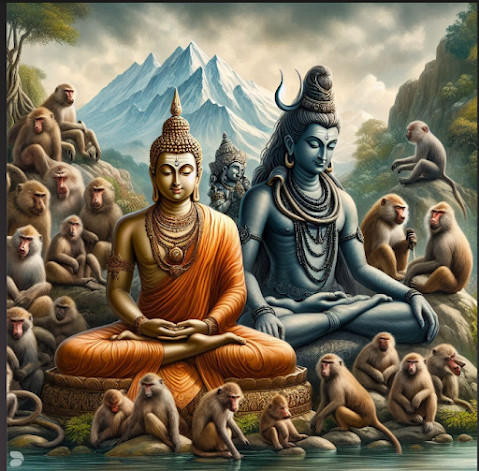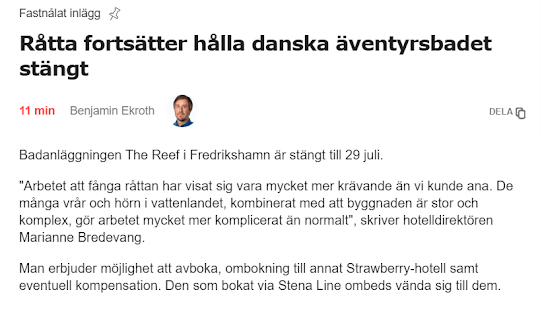Mindfulness has taken the world by storm. I happen to know that mindfulness
exercises have even been offered to unemployed in Sweden – not clear how on
earth that would increase their chances to get a job?! Inevitably, there are people
who believe that mindfulness is dangerous and cultic. Like the story about a guy
who was followed straight into the men´s room by a chaperon during a meditation
retreat. Or what about the urban legend that Hillary Clinton lost the 2016 POTUS
elections due to her, or perhaps her staff, constantly meditating according to
this method? One of these days, some ethnologist should write a paper about all
this!
Meanwhile, we can try to decode two overlapping scholarly articles by
Robert Sharf: “Is Mindfulness Buddhist? (And why it matters)” from the journal “Transcultural
Psychiatry” 2015 Vol 52(4), and “Mindfulness and Mindlessness in early Chan”
from the journal “Philosophy East and West” Volume 64, Number 4, October 2014.
Both are available for free at Academia.edu (registration required, but that
too is for free). I admit that decoding the articles were quite hard, but I
think I got the gist of it.
The practice known as mindfulness isn´t *really* a form of vipassana or
Theravada insight meditation, rather having modern roots in a Buddhist revival in
Burma (Myanmar). It´s mostly associated with Mahasi Sayadaw (1904-1982), who
apparently developed the most well-known techniques. Mahasi wanted a form of
meditation that was suited for laypeople, including those who knew next to nothing
about Theravada philosophy or liturgy. The result was “bare attention”, a term
coined by Mahasi´s disciple Siegmund Feniger. The technique is easy to learn
and was rapidly exported to many other Buddhist nations from Burma, both those following
Theravada and those practicing Mahayana. Even later, it conquered the world in
a secular form and can be used by essentially everyone: Buddhist modernists in
the Western world, Christians, prison inmates, hyperactive children, and (perhaps)
Madame Clinton´s campaign staff. It´s seen as part and parcel of a universal
and non-sectarian Buddhism. It also has a “perennialist” angle, treating
spiritual mind-states as cross-cultural. The mystics really did have exactly
the same raw experience, although their way of expressing it was culture-bound.
And now *you* can get the same experience, almost in your own backyard! Indeed,
you can actually get enlightened without following the rather complex and
demanding Buddhist path.
Not so fast, argues Sharf. The word translated “mindfulness” is the Pali
“sati”, which in turn is the same as the Sanskrit “smriti”. The original
meaning is something like “to remember” or “to recollect”. It turns out that
the meditative technique bearing this name in Theravada has very little to do
with modern mindfulness. In Theravada, “sati” doesn´t mean to observe your thoughts
and feelings as they come and go, effectively dismissing them all (the
mindfulness approach). Rather, it seems to be the exact opposite: “sati” entails
a careful analysis of each thought or feeling, learning to discriminate good “dhammas”
from bad ones, according to the moral precepts of Buddhism. Also, the practice
of “sati” can´t be isolated from studies of Buddhist scriptures, proper rituals,
the communal life of the monks, and so on.
The author further points out that mindfulness is based on a view of the
mind not found in Theravada. Mindfulness seems to imply that there is such a
thing as “pure” cognition of an object, without any interpretations of the discursive
mind. Our consciousness can therefore be trained to look at these qualia
dispassionately “from without” (so to speak) and then simply dismiss them. The
highest state would presumably be one of entirely pure mind, unsullied by any
qualia whatsoever. But according to Theravada philosophy, there is no state
like this. Consciousness and its objects arise co-dependently, so if
consciousness of objects cease, consciousness itself ceases. At least in this world,
that way madness lays. Sharf also points out that modern mindfulness is all
about positive thinking (and, I suppose, glossy magazines), while traditional
Theravada also sought to cultivate an attitude of world-weariness often
bordering depression (by modern American standards). Meditation on corpses is a
well-known example. One meditative state was known as “knowledge of appearance as
terror” and was likened to a mother witnessing her three sons being executed!
No safe space here, bro.
While mindfulness is thus a very modern thing, similar movements have
arisen within Buddhism before. For instance within Chan Buddhism in medieval China
(Chan is usually known as Zen in the Western world, Zen being the Japanese form
of the name). Chan masters who had a substantial lay following developed
techniques which seem to resemble “bare attention”. The techniques were attributed
to a certain Layman Fu, promised instant enlightenment, did away with monasticism
and ritualism, and so on. Sounds familiar? Sharf also speculates that the
esoteric Tibetan practice known as Dzogchen may have been another example of
such a “dumbed down” practice. He then describes what kind of criticism was
leveled against the Chan “bare attention” approaches by more traditional Chan
groups. They believed that the radicals couldn´t distinguish between right and
wrong, and that their practices led to “falling into emptiness” and “meditation
sickness”. This was apparently a dramatic euphemism for the practitioner being cut
off from everyday life and society, everything that makes us sane and human. To
retain our balance, we have to actively engage with Buddhist doctrine and forms
of life. An Indian master named Kamalashila criticized the Chan master Heshang
Moheyan during a debate in Tibet by saying that yogis who put an end to thinking
end up in the realm of “beings without minds” for 500 eons as mindless zombies!
In sum, then, Sharf´s point is that mindfulness is modern, that similar
movements in the past were heavily criticized from more traditional quarters
and probably only represented a minority, and that “bare attention” is based on
perennialism, erroneous notions about the human mind, fake positive thinking, a
chase after sensual pleasure, and commercialization. Almost anything than the
actual Buddhadharma. Well, yes, that does sound very modern indeed…
Perhaps we should be mindful of mindfulness? Ashtar Command, zoning out!








































